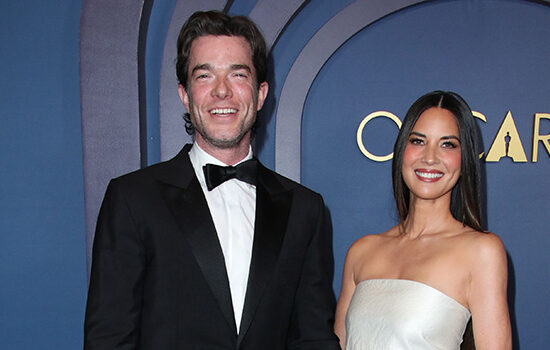
The poster for A Man Called Otto invites us to “fall in love with the grumpiest man in America.” But really, was there any doubt, considering that he’s played by Tom Hanks? The inevitable transformation of the title character from ill-tempered sourpuss to lovable softy wouldn’t generate much suspense anyway, since the film is a remake of the hit 2015 Swedish film A Man Called Ove, adapted from the best-selling novel by Fredrik Backman. Add to that the fact that you have the modern-day inheritor of Jimmy Stewart’s mantle playing the lead, and you can pretty much predict the film’s every beat.
But that doesn’t it make any less enjoyable or moving, thanks to its reliably effective redemption arc, narrative structure and Hanks’ enduring appeal. Unlike the Swedish film’s lead actor, Rolf Lassgard, who was genuinely intimidating in his curmudgeonliness, Hanks is never truly convincing as a perpetually aggrieved, hostile widower who takes his grief over his wife’s death out on the world. But you can sense how much enjoyment he’s getting out of playing against his popular image, and you happily go along for the ride.
A Man Called Otto
The Bottom Line
Plucks your heartstrings effectively.
Set in an unnamed Rust Belt town that has clearly seen better days (the movie was filmed in Pittsburgh), this American version directed by Marc Forster (Finding Neverland) closely follows its Swedish predecessor in most regards. Otto, who has recently been pushed out of his engineering managerial job, mainly spends his time scowling and grunting at anyone who has the temerity to cross his path and enforcing the rules of his gated neighborhood, which is controlled by the sort of real-estate company whose smarmy representative (Mike Birbiglia, in a role making little use of his comic talents) would have made a suitable villain in a Frank Capra movie.
Yes, Otto is cranky, alright. He yells at a young woman for letting her dog urinate on his lawn, a delivery truck driver for unauthorized parking, a neighbor for exercising too vigorously in a skintight outfit, and a stray cat for showing up on his property. He’s even willing to spend precious time arguing over being charged 33 cents too much in a big-box hardware store. He more than lives up to a bystander’s description of him as a “grumpy old bastard.” But we soon understand the cause of his despair, which prompts him to make several unsuccessful suicide attempts. He’s childless and alone, having recently lost his beloved wife Sonya to cancer.
His humanity only emerges during his regular visits to her grave, where he makes it clear that he intends to join her soon. It’s also revealed in a series of flashbacks to his younger days, in which the young Otto (Truman Hanks, Tom’s son, bearing an uncanny resemblance to his old man) has a meet-cute with Sonya (Rachel Keller, suitably endearing) when he boards a train going in the wrong direction in order to return a book she’s dropped. We see the couple moving into the home where the middle-aged Otto still lives and making friends with their neighbors, and then Sonya getting pregnant and tragically losing the baby in a bus accident that results in her being confined to a wheelchair.
As the film progresses, you find yourself counting the minutes until Otto will regain his soul. It starts to happen with the arrival of a young family in the neighborhood, consisting of the feisty, very pregnant Marisol (Mariana Trevino, in a breakthrough performance), her klutzy husband (Manuel Garcia-Rulfo, The Magnificent Seven), and their two young daughters. At first, Otto resists Marisol’s good-natured efforts to be friendly, but he eventually finds himself getting involved with his new neighbors in spite of himself. You can feel his resistance melting when he takes the first bites of a delicious homemade meal she’s gifted him, although in his thank-you note he can only begrudgingly describe the food as “interesting.” But it isn’t long before he’s babysitting the adorable tykes and teaching Marisol how to drive.
The storyline’s less convincing elements include Otto becoming a social media sensation after he’s filmed rescuing an elderly man who’s fallen onto train tracks. That allows him to exploit his newfound fame when the real estate company attempts to evict his longtime neighbors after they experience major health issues. It’s the sort of melodramatic plot contrivance that feels wholly unnecessary, as if screenwriter David Magee didn’t trust that the story of a grief-stricken man regaining his will to live would carry enough emotional weight.
But it’s hard to mind too much, thanks to Hanks’ perfectly modulated, understated performance — he’s truly moving when you feel Otto’s frost slowly starting to thaw — and the welcome comic moments that alleviate the film’s more heavy-handed aspects. There’s a particularly wonderful moment when Otto winds up in the hospital after collapsing in the street and Marisol is gravely informed that his heart is “too big.” Instead of registering alarm, she collapses into hysterical laughter, with Otto having the grace to fully get the joke.
Although A Man Called Otto never fully rises above its obvious plot machinations, director Forster thankfully applies a fairly restrained, subtle approach. The result is a film to which you ultimately find yourself succumbing even though you never stop being aware that your heartstrings are being shamelessly pulled.
Full credits
Production companies: Playtone, SF Studios, 2DUX², Columbia Pictures, Stage 6 Films, Artistic Films
Distributor: Sony Pictures Releasing
Cast: Tom Hanks, Mariana Trevino, Rachel Keller, Manuel Garcia-Rulfo, Truman Hanks, Mike Birbiglia
Director: Marc Foster
Screenwriter: David Magee
Producers: Fredrik Wikstrom Nicastro, Rita Wilson, Tom Hanks, Gary Goetzman
Executive producers: Marc Forster, Renee Wolfe, Louise Rosner, David Magee, Michael Porseryd, Tim King, Sudie Smyth, Steven Shareshian, Celia Costas, Neda Backman, Tor Jonasson
Director of photography: Matthias Keonigswieser
Production designer: Barbara Ling
Editor: Matt Chesse
Composer: Thomas Newman
Costume designer: Frank Fleming
Casting: Francine Maisler, Molly Rose
Rated PG-13,
2 hours 6 minutes













